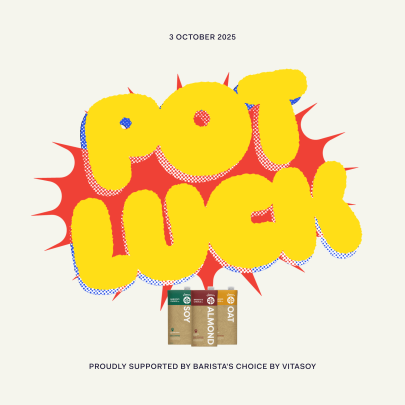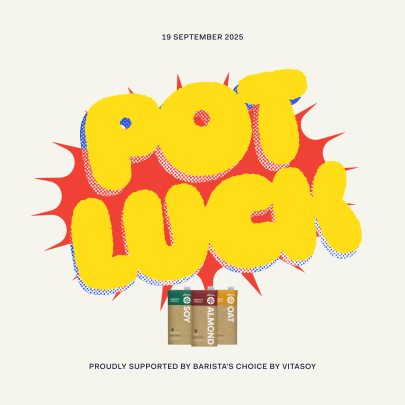Aug 1, 2025 Metro Eats
Kia ora,
Earlier this year, I stumbled across a short Instagram video that has since stayed firmly lodged in my mind. In it, a chef named Mohamed Al Amarin artfully tosses pizza dough within the confines of a parked food truck. In the corner of the truck, a heap of wood sits in front of a silver pizza oven. Children peer through the door of the truck, eyes wide, to observe the flair of the process or clutch their personal discs of bread and cheese. “Today, I feel like the happiest man in the whole world,” chef Al Amarin says to the camera. That video has lingered – not just because it was an impressive-looking pizza-making set up or because of the cute kids, but because of where it was being made: Gaza.
When I first watched the clip of chef Al Amarin making pizza for displaced children, the humanitarian situation in the Palestinian enclave was already dire. But since then the situation has gone from horrific to worse. As we are all aware at this point, the war on Gaza is not just a war of bombs, bulldozers and blockades – it is also a war on food. Sixty-three people, twenty-five of them children, have died from malnutrition-related causes this month alone, according to the World Health Organization. And while this week, Israel announced it would pause some military activity and allow more aid to flow in, this has only been shadowed by more horror: at least 48 Palestinians were killed by Israeli fire while attempting to access food aid on Wednesday, and the death toll due to the famine caused by Israel has continued to rise.
Since following chef Al Amarin on Instagram, I’ve learnt that he travelled to Italy to study pizza-making in 2023 where he posted selfies in front of the Colosseum and videos of his dough tossing skills in restaurant kitchens. A few months later, he was back in Gaza, displaced from his home, crouched beside a makeshift cooking contraption in front of tents. A life flipped upside down. It was during the earlier days of the war that he launched his mobile pizza cart (apparently the first in Gaza), bringing free pizza to children in refugee camps. Miraculously, earlier this year he opened a small, al fresco restaurant called Pizza Pizza in Gaza City. But with famine deepening, it has been closed for months. There has simply been nothing to cook and nothing to serve. This week, he reopened to customers – there’s still no pizza on the menu, but he does have coffee, tea, internet connection and manakish with thyme (essentially, Palestinian pizza).
Pizza may seem somewhat negligible in the face of war. But there is something about pizza – its ubiquity, its warmth, its adaptability – that makes it a powerful vessel for continuity and community in a place where everyday life has long had to exist between the cracks of ongoing blockades and military incursions. It’s a universal comfort food. In chef Al Amarin’s case, it’s a spectacle.
With the help of Nadine Mortaja who translated between Arabic and English, I spoke to Al Amarin this week about what it means to make pizza in Gaza – and what it means when you can’t. (The following interview has been edited for length and clarity.)
*
METRO: Kia ora chef Al Amarin, can you tell me a little about where you’re from and how you began cooking?
CHEF AL AMARIN: I’m Mohamed Al Amarin from Gaza. I’m 34 years old. I began cooking at the age of 19.
METRO: You now run a pizza restaurant in Gaza called Pizza Pizza, what inspired you to open it, and when did it all begin?
CHEF AL AMARIN: I had a dream before the war to have a pizza restaurant and to become a famous chef. I even wanted to become a worldwide chef. Then the war came and ruined everything. It ruined our dream, and Gaza, Gaza that we love. This put me in shock and I couldn’t do a lot of things. But I told myself I shouldn’t stop, because this is my dream and I need to complete it.
METRO: What did your journey to learning to make pizza look like?
CHEF AL AMARIN: I got hooked on pizza at the age of 20 when I started working at Taboon Restaurant in Gaza. I learnt how to make pizza in Gaza with the first trip from the Italian chef Maurizio (Domenico Maurizio Loi) from Sardinia. He came to Gaza in 2013. When I saw him making the pizza it caught my attention. This is when I realised I wanted to become a professional pizza maker.
METRO: What is the most delicious pizza you’ve ever eaten?
CHEF AL AMARIN: The most delicious pizza I had was in Italy in 2023 in Palermo. It was a four cheese pizza, quattro formaggi. The taste of the cheeses were weird and fresh. It felt like you were eating something real. The mozzarella cheese was especially delicious and fresh. It’s not available to us in Gaza because of the occupation. If something enters Gaza through the borders, it takes a long time and gets ruined. This is why the first thing I thought of when I reached Italy was that I wanted to taste fresh mozzarella cheese.
METRO: Can you describe your day today, from the moment you woke up to now?
CHEF AL AMARIN: Like any other civilian in Gaza in this war. We woke up in the morning and went to line up for water. After that we lit a fire for us to cook food – at the moment we eat one meal a day. After that, I went to the shops. I went to my restaurant to see if we needed any supplies. But during this time the restaurant is closed because there are no products coming in and there is an ongoing famine. Today is the first day I will open after two months of being closed, so we can give people the opportunity to come and use the internet. The Israelis have said there are no bombings today, so hopefully it will stop and we can go back to our normal lives.
METRO: How would you describe your restaurant?
CHEF AL AMARIN: All of Gaza is ruined except this street. I am confused. I wonder if God left this for me as a gift. Earlier in this war, I helped the people in the south of Gaza. I had a communal kitchen with some people from Italy and I used to cook there. I came and looked at this place: it has a big amount of space, it’s green and there aren’t many buildings around. You sit here and let out all the negative thoughts you have. There are olive trees. I have a pizza oven that is Italian style…let’s say it’s Palestinian-Italian. I have an open kitchen. I serve pizza. The biggest challenge I face is having the ingredients available. Nothing comes in. If it does come in it gets stolen by the Israelis. Hopefully once things open up again and produce and meat becomes available I will serve things that are Italian-Palestinian. I want to make a chicken wrap that everyone loves and have sauces like ranch dressing available. I want to remind people what life was before 7 October.
METRO: You’ve been giving away pizza to displaced families and children through events like your Pizza Parties. Can you tell us about how often these take place and what it means to serve pizza within this current context?
CHEF AL AMARIN: This was the biggest and happiest thing I’ve done. I will continue to do it as long as I am breathing. When I serve pizza to the kids I feel unexplainably happy, especially when I make them smile. I’ve done 30 parties so far. The last one was a week ago. When I do these things I feel like the happiest person alive.
METRO: What’s the atmosphere like inside your restaurant today compared to the world outside?
CHEF AL AMARIN: Looking at people’s expressions, everyone is visibly tired and exhausted. We aren’t okay, we are tired. When I look at the customers, who are like my second family, these aren’t the same people I knew before the war. People pretend to be okay and comfortable but they are not, they are tired. We deserve to have a normal life.
METRO: Why do you think people still decide to come to your restaurant despite the fact you’re not serving pizza at the moment, and despite the danger that comes with moving around?
CHEF AL AMARIN: Danger is everywhere, there are no safe places. A Thai restaurant got bombed, a restaurant near the sea got bombed – restaurants aren’t safe. But rather than being in the hot tent, people feel they need to breathe some fresh air and open the internet and see what’s happening in the outside world. That’s the idea. My customers call me and say “Mohamed even if there isn’t food we just want to come and sit – we are tired of the tent and the hot even if we got bombed, that’s god’s will for us it doesn’t matter, just open the restaurant”. Customers come to have a change of scenery. They usually order pizza when I can make them. It is something beautiful and reminds us of life before the war.
METRO: What are you doing when you’re not making pizza?
CHEF AL AMARIN: This is a tough question. I sit in my pizza shop and serve tea or coffee and let people use the internet so they can have a change of scenery. On the inside I feel deflated. Sometimes I sit and cry that I can’t do anything. I want to do something but I can’t. I’m forced to take out my silicone pizza dough that I had with me in Italy and train with it so I can relieve my stress.
METRO: Is there a food you miss the most?
CHEF AL AMARIN: Yes there are many. I miss making chicken and other meat because we are really deprived of that. We deserve to eat those foods but we can’t because they are not available.
METRO: What’s the hardest part of each day? And what’s the best part?
CHEF AL AMARIN: The hardest part of my day is when I can’t make pizza. I want to hold the dough and get to work with the flour. The best part of my day is when I serve pizza to the children and they are laughing, happy and eating. But one thing that gets me is that at the Pizza Party I do, there’s usually only enough for 200 people and there are more people that I can’t feed. When their turn in the line comes and I can’t serve them, that’s the worst part.
METRO: Finally, what do you dream of when it comes to your pizza making?
CHEF AL AMARIN: I dream of being a worldwide pizza chef…see different cultures and merge them with the Palestinian culture and be the first person to invent this. I would love to open a restaurant in Europe where I can serve authentic Palestinian food.
Where to donate:
You can contribute to the Pizza Parties run by Chef Al Amarin and Gaza Sunbirds HERE.
Also, if you’re in the market for a whole cake, SUNDAY THE BAKERY is currently baking a “Heart Cake for Gaza” with $5 from every sale of the heart cake directly donated to a family trying to flee Gaza. You can order HERE.
Hei kōnā mai,
Charlotte





